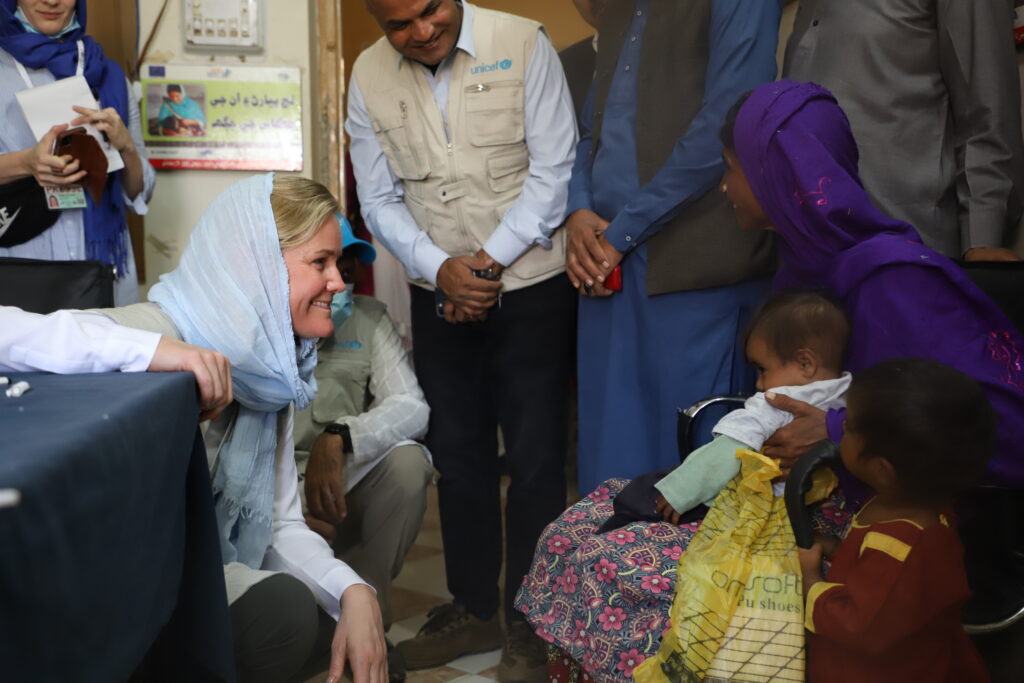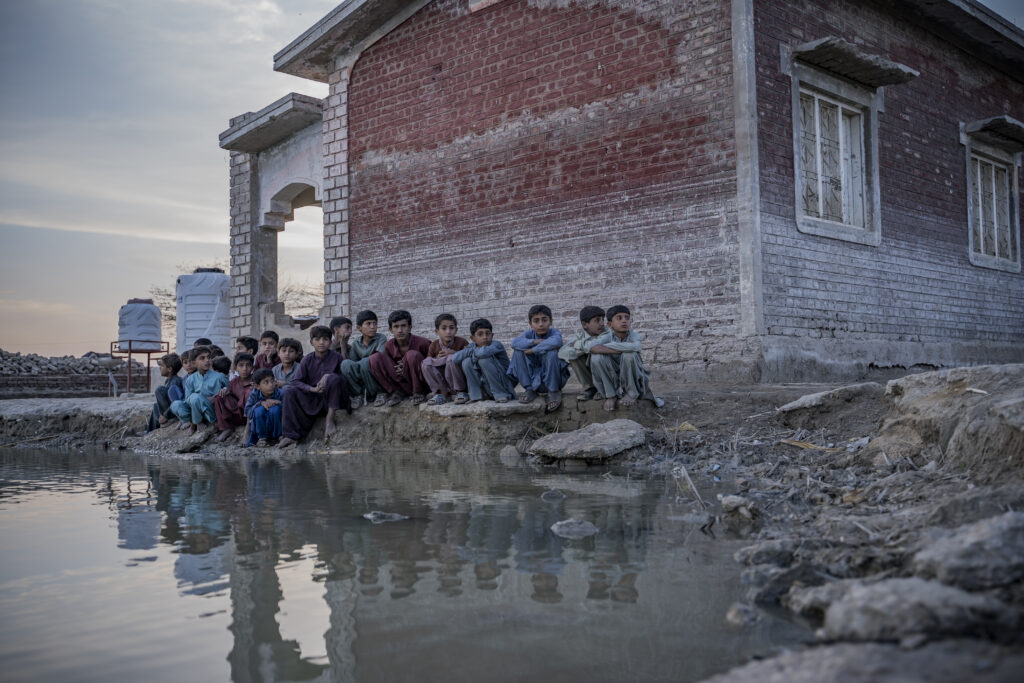By Susanne Dahl, Secretary General, UNICEF Denmark
Climate change is triggering one disaster after another, especially in the world’s poorest countries. An unfair correlation when you consider that the countries hardest hit are those that emit the least CO2.
In 2022, Pakistan was hit by unprecedented floods that have destroyed infrastructure, smashed sewage systems and left cities in ruins. I visited the country a few months ago and saw how people slept under the open sky. I saw their homes and fields under water. I heard their stories of who and what they have lost, and I shared their fears for the future.
While rivers overflow their banks in Pakistan, they dry up in other parts of the world. On the Horn of Africa, severe drought is leading to water and food shortages. Right now, more than 1.7 million children under five are so malnourished that they risk dying if they don’t get help.
Elsewhere in the world, children are affected by war and conflict. In Ukraine, thousands of women and children have been displaced. In addition to the horrors children in Ukraine have suffered in recent years, war has also affected children in distant latitudes. That is why I began by calling the world’s crises interconnected. Ukraine’s disrupted food production has pushed up food prices around the world, just as inflation and the energy crisis created by the war have elevated prices on other necessities. Our response needs to be scaled up dramatically to match the rapidly increasing demand for assistance.
UNICEF’s funding needs for 2023 are a staggering USD 10.3 billion. This is higher than ever before. At the same time, it has become more difficult to raise the necessary funds because so many global challenges are competing for attention. But we never give up on the world’s children. We continue to work diligently, and we are deeply grateful to be able to do so with valued partners like the Grundfos Foundation.



